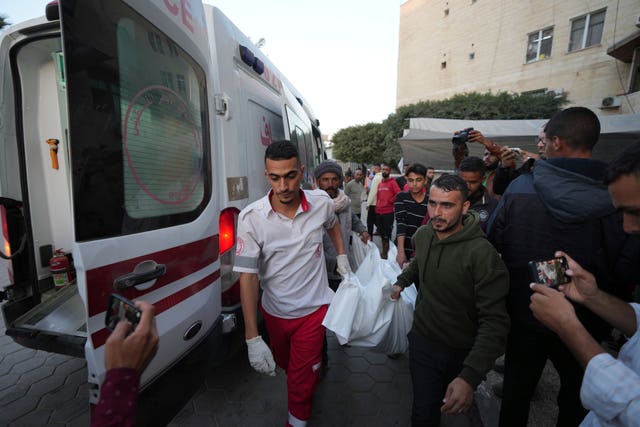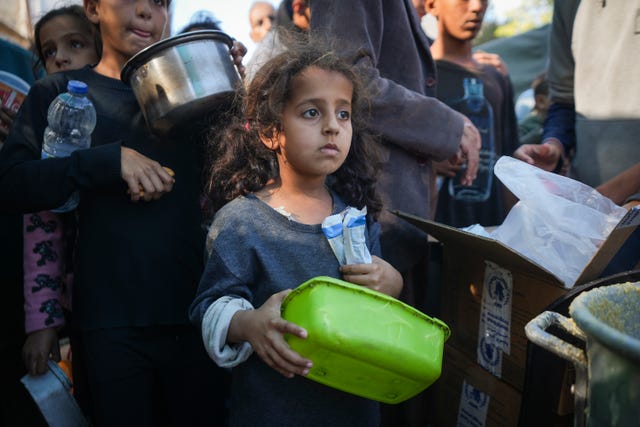
The death toll in the Gaza Strip from the 13-month-old war between Israel and Hamas has surpassed 44,000, health officials said.
The Gaza Health Ministry does not distinguish between civilians and combatants in its count but it has said that more than half of the fatalities are women and children. The Israeli military says it has killed over 17,000 militants, without providing evidence.
The Health Ministry said 44,056 people have been killed and 104,268 wounded since the start of the war. It has said the real toll is higher because thousands of bodies are buried under rubble or in areas that medics cannot access.

The war began when Hamas-led militants stormed into southern Israel on October 7, 2023, killing 1,200 people, mostly civilians, and abducting another 250.
Around 100 hostages are still inside Gaza, at least a third of whom are believed to be dead. Others were released during a ceasefire last year.
The Israeli offensive has caused heavy destruction across wide areas of the coastal territory, leading many to wonder when or how it will ever be rebuilt.
Around 90% of the population of 2.3 million people have been displaced, often multiple times, and hundreds of thousands are living in squalid tent camps with little food, water or basic services.

Israel says it tries to avoid harming civilians and blames their deaths on Hamas because the militants operate in residential areas, where they have built tunnels, rocket launchers and other military infrastructure.
Palestinian officials and rights groups accuse Israeli forces of war crimes and crimes against humanity, and the United Nations’ top court is considering allegations of genocide brought by South Africa.
The Israeli government denies the allegations, accusing critics of being biased against it.
In recent weeks, the amount of humanitarian aid entering Gaza has plummeted, prompting the United States to threaten to reduce its military support for Israel before backing down, citing limited progress.
Experts have warned that isolated, war-ravaged northern Gaza could already be experiencing famine.
The United States, Egypt and Qatar spent months trying to broker a ceasefire agreement in which Hamas would release the remaining hostages in exchange for an end to the war.
Those talks ground to a halt over the summer, with Israel and Hamas each accusing the other of making unacceptable demands.
US President-elect Donald Trump has vowed to end the wars in the Middle East without saying how. His previous administration gave unprecedented support to Israel and Prime Minister Benjamin Netanyahu’s hard-line policies toward the Palestinians.


Why are you making commenting on The National only available to subscribers?
We know there are thousands of National readers who want to debate, argue and go back and forth in the comments section of our stories. We’ve got the most informed readers in Scotland, asking each other the big questions about the future of our country.
Unfortunately, though, these important debates are being spoiled by a vocal minority of trolls who aren’t really interested in the issues, try to derail the conversations, register under fake names, and post vile abuse.
So that’s why we’ve decided to make the ability to comment only available to our paying subscribers. That way, all the trolls who post abuse on our website will have to pay if they want to join the debate – and risk a permanent ban from the account that they subscribe with.
The conversation will go back to what it should be about – people who care passionately about the issues, but disagree constructively on what we should do about them. Let’s get that debate started!
Callum Baird, Editor of The National
Comments: Our rules
We want our comments to be a lively and valuable part of our community - a place where readers can debate and engage with the most important local issues. The ability to comment on our stories is a privilege, not a right, however, and that privilege may be withdrawn if it is abused or misused.
Please report any comments that break our rules.
Read the rules here